The COMETA educational innovation project aims to promote the acquisition of professional teaching skills with the use of active methodologies in the initial training of teachers. It is designed to bring the training that students receive at the university closer to the real demands of the educational system, society and the labor market, promoting collaboration with other educational-cultural and social entities.
The line of research is to continuously use procedures to think reflectively and creatively and turn them into a way of facing diverse situations, a culture of thought in action. Committing to transdisciplinary research (frameworks, tools and strategies) promoting civic engagement with the aim of empowering future education professionals.
This project aims to develop a multimedia notebook in digital format with useful information on qualitative research techniques, focusing on in-depth interviews and documentary research. Qualitative methodology is part of the research processes in the knowledge society, since contemporary problems require incorporating the qualitative perspective to deepen the understanding and interpretation of complex social phenomena.
Second Round is a consolidated innovation project (linked to the Consolidated Group GCID23_2584190) focused on promoting artistic education in the world of Secondary Education. During the 2023-2024 academic year we want to continue with the “Second Round: Art and Struggle in Secondary” Project, after 8 consecutive editions, focusing on museums as allied institutions, promoting alliances with inclusive and sustainable museums.
One of the main objectives of the small luthiers is to provide students and teachers with creative autonomy, involving them in processes of contemporary artistic creation. On the one hand, the construction of the tools within a DIY philosophy will bring us closer to a craft concept that will reinforce the idea of an authentic artistic work that fights against the vision of precooked solutions as a recipe that ends up homogenizing learning and nullifying the true value artistic thought.
The line of research is to continuously use procedures to think reflectively and creatively and turn them into a way of dealing with diverse situations, a culture of thought in action. Betting on transdisciplinary research (frameworks, tools and strategies) promoting civic engagement with the aim of empowering future education professionals.
This project recognizes the relevance and need to value and promote creative thinking in adolescents. We propose a boost in the creative level of our adolescent students who attend secondary school, incorporating for this a highly relevant resource such as museums, powerful informal education environments that can help us improve the secondary educational scenario, generating synergies with educational centers. For this we propose to promote the encounter with the educational potential that museums offer us, activating mediation efforts between secondary schools and museums. Facing and approaching the challenge in advance will help to better understand the situation, emphasize the strengths that our students have and detect the points that can be improved around creative thinking.
The purpose of the project is to contribute to a more plural approach to teaching-learning modalities at the University, focusing especially on those that favor reflective-creative thinking and the awareness of students in the construction of knowledge and in their learning process. From the contrast that reflective practice and collaborative teamwork allow, the project wants to be one more contribution to the design of these interventions and learning experiences, providing evidence of their effect on professional development and the development of generic skills in education. higher education through the development of transdisciplinary practices and from the perspective of the sustainable development goals.
The project aims to improve the capacities of state authorities to identify, analyze, monitor and evaluate online hate speech in order to develop and strengthen counter-narrative strategies (upstander speech) against hate speech motivated by racism, xenophobia, Islamophobia, antisemitism and antigypsyism. Within the framework of the working group led by Benno Herzog and the Critical Theory Research group, the aim is to discuss and generate a map of good practices and effective teaching tools for the counter-narrative of hate speech on the web.


 COMETA. Competencies with Active Methodologies in teacher training: B-SMART with Design Thinking.
COMETA. Competencies with Active Methodologies in teacher training: B-SMART with Design Thinking.
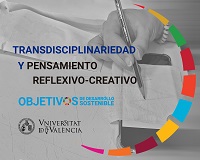 Transdisciplinarity and reflective thinking through sustainable development goals in teacher training
Transdisciplinarity and reflective thinking through sustainable development goals in teacher training
 DOCUMED: multimedia notebook for teaching-learning qualitative research techniques: documentary research
DOCUMED: multimedia notebook for teaching-learning qualitative research techniques: documentary research
 Second Round: Art and Struggle in Secondary School with Inclusive and Accessible Museums
Second Round: Art and Struggle in Secondary School with Inclusive and Accessible Museums
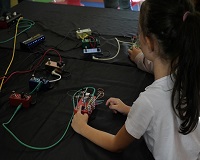 Little Luthiers: the classroom as a laboratory for creation contemporary artistic
Little Luthiers: the classroom as a laboratory for creation contemporary artistic
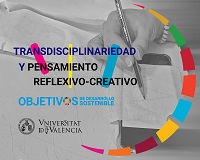 RENOVA PID Transdisciplinarity and reflective thinking through the objectives of sustainable development in the training of teachers.
RENOVA PID Transdisciplinarity and reflective thinking through the objectives of sustainable development in the training of teachers.
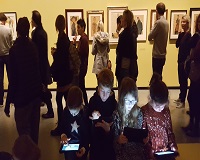 DECHADOS. Inclusive creativity in secondary school through the relationship between educational centers and museums
DECHADOS. Inclusive creativity in secondary school through the relationship between educational centers and museums
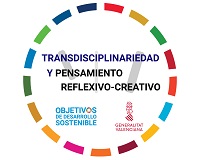 Transdisciplinarity and reflective-creative thinking in teacher training from a responsible perspective in the implementation of the sustainable development goals at the university.
Transdisciplinarity and reflective-creative thinking in teacher training from a responsible perspective in the implementation of the sustainable development goals at the university.
 RealUp -Hate speech, racism and xenophobia: alert mechanisms and response, analysis of the upstander speech
RealUp -Hate speech, racism and xenophobia: alert mechanisms and response, analysis of the upstander speech





